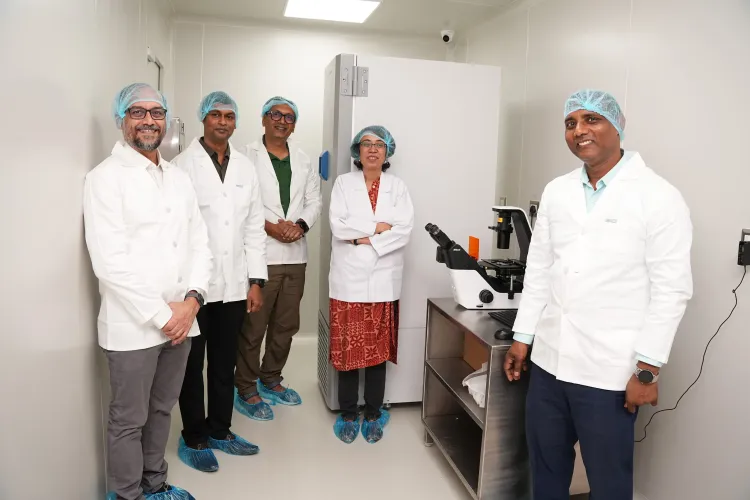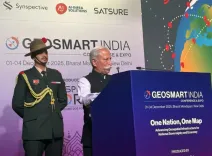Has IIT Delhi Unveiled a Groundbreaking BSL3 Lab for Infectious Pathogen Research?

Synopsis
Key Takeaways
- The BSL3 facility at IIT Delhi is the first of its kind among leading Indian educational institutions.
- It aims to enhance biomedical research by enabling diagnostics and therapeutic development for class-3 pathogens.
- The facility promotes collaboration between academia and industry.
- Startups and MSMEs can benefit from rapid testing iterations without significant investment.
- Trained professionals will assist in device testing within the lab.
New Delhi, Aug 20 (NationPress) In an effort to transform the landscape of biomedical and clinical diagnostics research, the Indian Institute of Technology (IIT) Delhi officially launched a Biosafety Level 3 (BSL3) laboratory on Wednesday.
This state-of-the-art facility will enable research on diagnostic tools and therapies for class-3 pathogens, setting a precedent as the first initiative of its kind among premier educational institutions in India.
This milestone is a significant advancement in India’s biomedical research landscape, reinforcing IIT Delhi’s dedication to fostering innovation within healthcare technology.
According to Prof. Arvind Nema, Deputy Director (Operations) at IIT Delhi, 'This new research and testing facility will catalyze research and innovation in medical diagnostics and therapeutics, supporting IIT Delhi's mission to serve both academia and the industry in healthcare research, thus bringing scientists and engineers together on a singular platform to conduct pioneering research. This will pave the way for numerous collaborative research opportunities with medical institutions in NCR and across India.'
The newly inaugurated facility is situated within the Micromodel Complex on campus, falling under the aegis of IIT Delhi's Central Research Facility (CRF). It will be accessible to researchers from both academia and industry on a paid basis, adhering to CRF protocols for short- to medium-term usage.
The BSL3 facility is poised to greatly benefit startups and MSMEs, as they can utilize their equipment and personnel within the premises for rapid iterations without needing to invest in specialized facilities.
'We take pride in adding a new dimension to the medical diagnostics ecosystem at IIT Delhi. Unlike other BSL3 labs in India, this facility allows users to bring their medical devices inside for testing under the guidance of trained professionals skilled in handling class-3 pathogens. This will empower both hardware and software engineers to refine and optimize their diagnostic platforms within the lab,' stated Prof. Sandeep K. Jha from the Centre for Biomedical Engineering, who oversees the facility.
'This type of assisted access has never been available in the country before, forcing device developers to send their products to specialized BSL3 and BSL4 labs for testing, which complicated the process of quickly addressing and enhancing device performance,' noted Prof. Ashok K. Patel from the Kusuma School of Biological Sciences at IIT Delhi, who co-directed this initiative.










